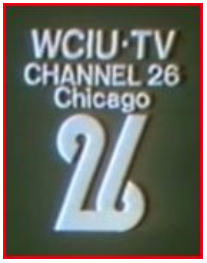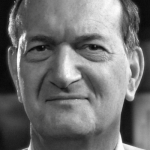Fifty years ago this week, Chicagoans lucky enough to receive snowy signals on their makeshift UHF tuners got their first glimpse of WCIU-Channel 26 (whose call letters stand for “Chicago’s First UHF”).
In addition to time-brokered ethnic and foreign language programming, initial offerings on the new broadcast outlet included old movies, local wrestling matches, bloody bullfights from Mexico and reruns of the 1950s sitcom “Amos ’n Andy.”
It was an inauspicious beginning for the station founded by broadcast veteran John Weigel (father of famed sportscaster Tim Weigel) and acquired a few years later by majority stockholder Howard Shapiro, whose family still owns and operates parent company Weigel Broadcasting.
It would take another 10 years before Channel 26 began broadcasting in color. And another 30 years before it replaced its foreign language (mainly Spanish) lineup and moved to general market programming, rebranding itself as “The U.” Its longest running show, “The Stock Market Observer,” aired live seven hours a day from studios in the Chicago Board of Trade from 1967 to 2000.
“It’s been terrific to see the evolution of the station that stayed Chicago roots-based, locally owned,” Neal Sabin, vice chairman of Weigel Broadcasting, said in an interview on “You and Me This Morning.” “So many television stations have been sold to other people now and giant corporations. This is still a family business, and I think we’re all kind of family here. It’s a small, entrepreneurial kind of atmosphere. It’s always been that way.”
Recalling the station’s formative years as the home of “Soul Train,” “Red Hot & Blue” and “A Black’s View of the News,” and as well as an outlet for Greek, Polish, Italian and a dozen other ethnic groups, Sabin said the key has been serving communities that weren’t reflected elsewhere on television.
“When the station first went on the air, there were very few people who could see UHF television, because in 1964 that was the first year the FCC mandated that TVs had to be able to get UHF,” he said. “So this station struggled for a long, long time. And one of the ways it survived was by serving all these different communities and zigging when other people zagged. Twenty years ago, when we became The U, we kind of said, you know, we need to be a little more general market and appeal to everybody, yet we’ve got to maintain that feel of difference.”
In keeping with the publicity-shy personality of Sabin’s boss, Weigel Broadcasting chairman Norman Shapiro, don’t expect much fanfare on WCIU's 50th anniversary. There's no banner about the milestone on the station's website. No press releases have been issued. Not even an Eli's cheesecake for the occasion.
“We’re not big on patting ourselves on the back so much,” Sabin told morning co-hosts Melissa Forman and Jeanne Sparrow. “We’d kind of like to talk about the communities we’ve served for the last 50 years and who we’re talking with now on your show everyday.”





